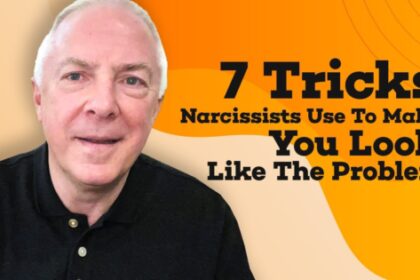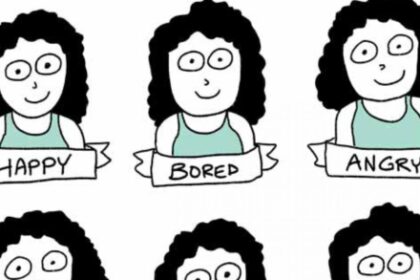An intriguing correlation has recently surfaced in psychological studies, shedding light on the predisposition of individuals with antagonistic narcissists traits towards a particular form of compulsive behavior: pornography addiction.
The intersection of narcissism and addiction has long been a subject of scholarly exploration, but the revelation that grandiose narcissists may be more susceptible to developing pornography addictions than the average person introduces a new and disconcerting dimension to this complex relationship.
As we delve into the depths of these alarming psychological studies, a compelling narrative unfolds – one that challenges preconceived notions about both narcissism and the nature of addiction.
In this article, we will navigate the intricacies of grandiose narcissism, examine the psychological mechanisms that make individuals vulnerable to addiction, and explore the potential societal implications of this unsettling connection. Join us on this intellectual journey as we unravel the intricate web woven between the grandiose narcissistic psyche and the allure of pornography, seeking to understand the psychological underpinnings that contribute to this unexpected convergence.
Narcissism and Pornography
Past research has found that persons high in narcissism report higher levels of pornography use in general, and that greater levels of entitlement predict more use of pornography. More recent research has found that persons higher in narcissism and other traits are more likely to identify themselves as victims.
The idea that pornography is addictive, causing brain changes and alterations to sexual behaviors and attractions, has proliferated in the past 20 years as the internet has eased access to porn. Porn addiction is a concept that is particularly popular and promoted in online discussion and self-help groups.
These groups are particularly prone to misogynistic, racist, homophobic dialogues, and often promote high levels of antagonism toward the pornography industry.
In 2021, Robert Aaron Long committed several murders in Atlanta-area massage parlors, and was arrested on his way to Tampa, allegedly to engage in more violence toward unidentified entities involved in pornography. In interviews with police, Long claimed that his criminal actions were to remove temptations and to “help others with sex addiction.”
Antagonistic Narcissism and Pornography Addiction
Externalizing responsibility and blaming others are common features of narcissism, as persons high in narcissism rarely see themselves as at fault for problems or misbehaviors. In recently published research, addiction-personality researchers explored whether certain components of narcissism were related to identifying oneself as addicted to pornography, from the perspective that seeing oneself as addicted to pornography was a form of externalized responsibility: placing blame on pornography for one’s sexual or interpersonal struggles.
This research involved four different studies and samples, three from the United States and one from Malaysia. Across these samples, there were a total of 4,589 participants. One of the U.S. samples was drawn from university undergraduates, a second was recruited online and matched to representative U.S. norms, and the final U.S. sample was a representative sample drawn from national polling.
Participants in all of these studies completed a battery of measures, including a measure assessing both pornography use and feelings of compulsive use of pornography.
Across all samples analyzed, there were consistent, robust associations between narcissistic antagonism and participants’ self-perceived addiction to pornography. The strongest associations were found in the samples from the United States.
The effect size for the correlation between narcissistic antagonism and pornography addict-identity was very strong. More than 20% of the variance in identification as addicted to pornography was explained by levels of narcissistic antagonism. Consistent with past research, higher levels of narcissism, and specifically antagonistic forms of narcissism, predicted higher levels of pornography use, though only in the U.S. samples.
In contrast to past research, levels of narcissistic antagonism were statistically more predictive of pornography struggles than were variables of religiosity. Thus, it appears that while moral inconsistency is a strong component of self-perceived pornography addiction, narcissistic traits may hold greater influence.
The participant sample from Malaysia did not display the same strength of association between narcissism and pornography use or feelings of addiction as was found in U.S. samples. The researchers suggest that this may relate to cultural differences in personal responsibility, and individualistic vs. communitarian cultures. Future research can hopefully tease out what it is about U.S. culture that encourages antagonistic narcissism and feelings of being addicted.
Recent research also found that levels of narcissism predicted self-identification as addicted to pornography, though this research used a single form of narcissism. The current research replicates this finding, with further understanding that the link is driven by narcissistic antagonism, as opposed to other components of narcissism (such as extraversion or neuroticism).
Narcissistic antagonism describes the components of narcissistic personality which are interpersonally expressed as entitled, exploitive, and aggressive behaviors. By finding that perceived addiction to pornography is most closely predicted by levels of antagonistic narcissism, we can thus link this to desires for instant gratification, low frustration tolerance, and a tendency toward more self-gratifying pleasure-seeking.
In short, the desire to shirk responsibility for negative outcomes that is often central to more antagonistic individuals’ approaches to life may lead one to excuse their own behaviors as being out of their control.
Persons higher in antagonistic narcissism are more likely to see themselves as suffering unjustly, persecuted by others, and facing unfair levels of opposition, and they are more likely to blame external factors for their struggles, which may reinforce and exacerbate their feelings of antagonism.
Treat the Narcissists or the Porn?
This research has strong clinical implications for the treatment of individuals who identify as struggling with or addicted to pornography. Supporting their focus on pornography as “the problem” through encouraging abstinence is unlikely to address the antagonistic narcissism and entitlement at root of this dynamic. Indeed, by encouraging a focus on “fighting pornography,” feelings of antagonism and victim-hood are likely to be exacerbated and reinforced.
Unfortunately, the modern porn-addiction treatment industry, and online discussions of porn addiction, seem to be feeding and enabling narcissism, as opposed to challenging feelings of victim-hood and confronting dispositions toward an external locus of control for persons struggling with their use of pornography. Treatment of persons who seek support for their use of pornography should include an inquiry into the possible role of feelings of entitlement, perceived victim-hood, and difficulty with personal responsibility.
Navigating Narcissism and Pornography Addiction
In conclusion, recent research illuminates a nuanced connection between grandiose narcissism and pornography addiction, extending beyond individual experiences. The internet’s role in facilitating access has fueled divisive discussions, while real-world incidents, such as Robert Aaron Long’s case, underscore the societal implications.
Antagonistic narcissism emerges as a consistent factor in self-perceived pornography addiction, with global relevance evident in diverse cultural samples. This insight into varied narcissistic manifestations enriches our understanding of the intricate links between personality traits and addictive behaviors.
The clinical dilemma — whether to treat narcissism or pornography addiction — prompts a shift toward comprehensive self-reflection in therapeutic strategies. In navigating these complexities, a holistic understanding and socially informed approaches are crucial in unraveling dynamics and mitigating potential societal consequences.






